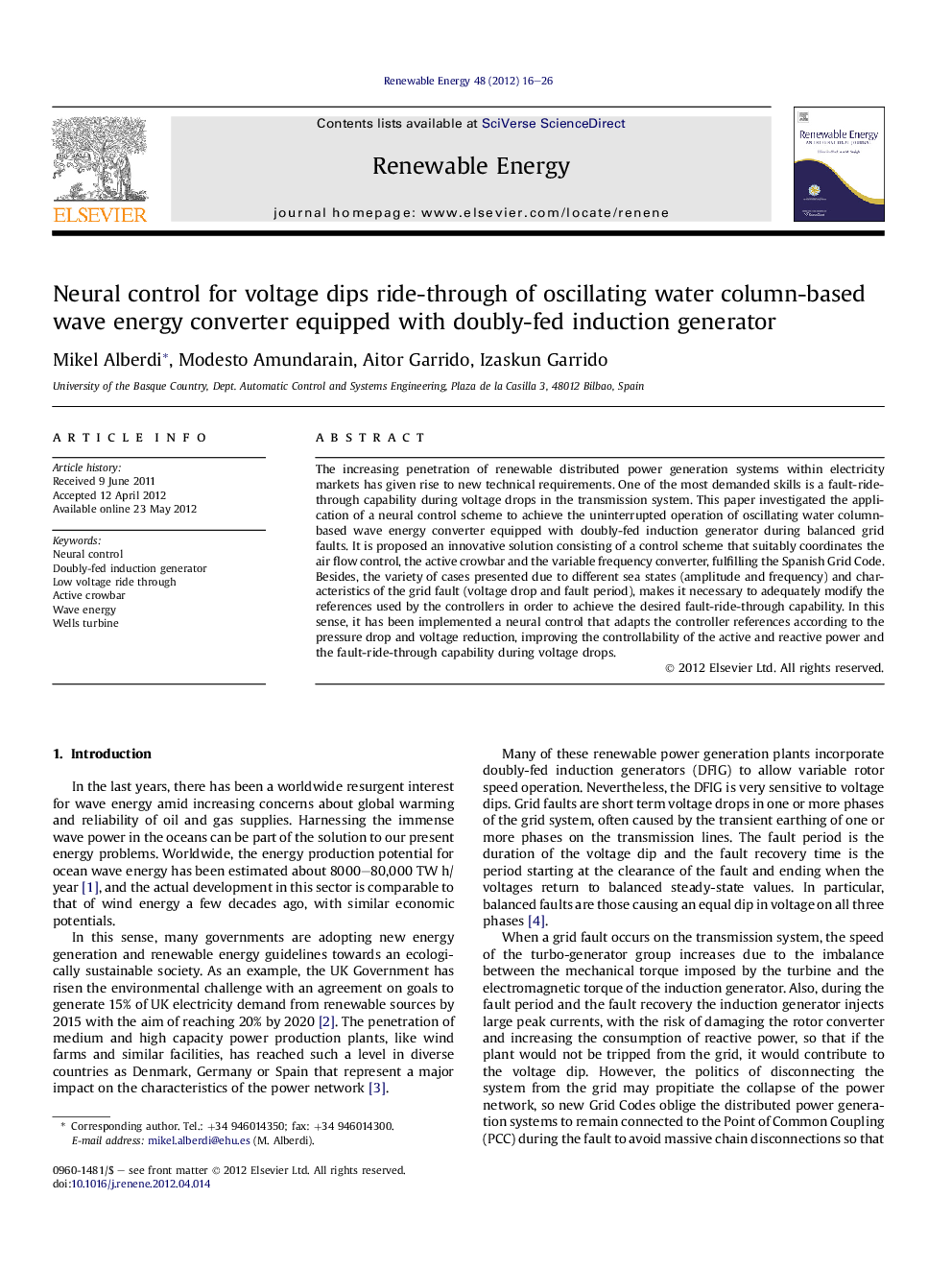| Article ID | Journal | Published Year | Pages | File Type |
|---|---|---|---|---|
| 300851 | Renewable Energy | 2012 | 11 Pages |
The increasing penetration of renewable distributed power generation systems within electricity markets has given rise to new technical requirements. One of the most demanded skills is a fault-ride-through capability during voltage drops in the transmission system. This paper investigated the application of a neural control scheme to achieve the uninterrupted operation of oscillating water column-based wave energy converter equipped with doubly-fed induction generator during balanced grid faults. It is proposed an innovative solution consisting of a control scheme that suitably coordinates the air flow control, the active crowbar and the variable frequency converter, fulfilling the Spanish Grid Code. Besides, the variety of cases presented due to different sea states (amplitude and frequency) and characteristics of the grid fault (voltage drop and fault period), makes it necessary to adequately modify the references used by the controllers in order to achieve the desired fault-ride-through capability. In this sense, it has been implemented a neural control that adapts the controller references according to the pressure drop and voltage reduction, improving the controllability of the active and reactive power and the fault-ride-through capability during voltage drops.
► The most demanded skill during voltage drops is a fault-ride-through capability. ► The innovative aspect exploited in this paper is the application of a neural control. ► The controller changes the references according to the pressure drop and voltage dip. ► The neural controller achieves the uninterrupted operation of the wave energy plant.
